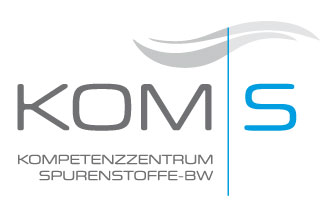Baden-Wuerttemberg
In Baden-Wurttemberg, various wastewater treatment plants of different sizes are currently being expanded to include an adsorption stage that will be operated by means of powder activated carbon. The operation will be based on the findings obtained from the research and development project conducted at the Steinhäule Wastewater Treatment Plant Association in Ulm. The expansions are the result of increasing efforts made to eliminate organic micropollutants from the effluent of municipal wastewater treatment plants. In relation to the population equivalent that is nationally connected to the new technology, these endeavours make Baden-Wurttemberg a leader in the implementation of techniques to eliminate micropollutants in its wastewater treatment plants in both national and international comparison.
For many years, the University of Stuttgart and the Biberach University of Applied Sciences have been conducting research on the topic of micropollutants and the possibility of reducing the entry of non-biodegradable and/or persistent substances into bodies of water in a targeted way. More than 20 years ago, the Institute for Sanitary Engineering, Water Quality and Solid Waste Management (ISWA) already carried out process engineering experiments with powder activated carbon primarily in order to treat discoloration of municipal wastewater.



The former investigation results were used for the project planning of the expansion of the wastewater treatment plants in Albstadt, Hechingen and Lautlingen. The subsequent support and optimisation of these plants were also performed by ISWA. Within the scope of the ‘Investigation and optimisation of wastewater treatment for the elimination of organic micropollutants under process engineering and economic aspects’ project, the University of Stuttgart performed further research on the existing, predominantly biological process technology for wastewater treatment with regard to the elimination of organic micropollutants and the implementation of corresponding measures. With the subsequent pilot tests, different process technologies such as membrane processes, ozoning or the use of different activated carbon types with respect to their elimination behaviour regarding micropollutants have been compared on the site of ISWA.
At the University of Stuttgart, research on various process technologies that separate powder activated carbon is currently being conducted within the scope of the ‘MICROFLOCCULATE – Strengthening municipal wastewater treatment plants in particular municipal flocculation filtration systems through the use of activated carbon’ project, which is part of the major ‘Elimination of pharmaceuticals and organic micropollutants: development of concepts and innovative cost-effective treatment processes’ project, funded by the Ministry for Climate Protection, Environment, Agriculture, Conservation and Consumer Protection of the State of North Rhine-Westphalia and supplemented by own funds. In addition, the ISWA is conducting research on the analytical detection of powder activated carbon in wastewater as well as analytical methods for studying the properties of powder activated carbon with respect to ensuring the highest possible level of solids separation.
-
> In progress
More infos coming soon.
-
> Completed
Municipal and scientific research projects
Project Title
Funding source
Download
Treatment with activated carbon in the Sindelfingen wastewater treatment plant
Böblingen Sindelfingen joint body wastewater treatment plant
PDF
Advanced removal of organic pollutants in the effluent of the Lahr wastewater treatment plant by means of powder activated carbon
Wastewater Association of the Lahr region
PDF
Investigation regarding maximum solids separation from an adsorption stage operated with powder activated carbon using a cloth filter
Wastewater Association of the Lahr region
PDF
Scientific support of studies on potential operational effects of powder activated carbon on the existing trickling filter at the Karlsruhe
wastewater treatment plantCity of Karlsruhe, Civil Engineering Department
PDF
Studies on the maximum removal of organic pollutants in the Karlsruhe wastewater treatment plant by means of powder activated carbon
City of Karlsruhe, Civil Engineering Department
PDF
Scientific support of adsorption stage implemented in partial flow mode at the Mannheim wastewater treatment plant and development of a
feasibility study regarding the implementation of the process for the entire wastewater treatment plantMannheim Wastewater Treatment Services
PDF
Project Title
Funding source
Download
Investigation of the binding behaviour of powdered activated carbon regarding micropollutants under anaerobic conditions
Baden-Wurttemberg Ministry for the Environment, Climate Protection and the Energy Sector
PDF
Development of an adsorption stage for elimination of organic micropollutants in municipal wastewater treatment plants –
Sub-project 2B: Optimisation of powder activated carbon separation by means of filtration as a basis for plant dimensioningFederal Ministry of Education and Research
PDF
Measures to improve water quality by removing the organic residual contamination using activated carbon
Baden-Wurttemberg Ministry for the Environment, Climate Protection and the Energy Sector
PDF
Study on the elimination of micropollutants in the powder activated carbon system of the Mannheim wastewater treatment plant and development of general proposals for process monitoring
Karlsruhe regional council
PDF
Reduction of estrogen-active substances in wastewater by employing powder activated carbon – review of the effectiveness by means of fish monitoring and accompanying analysis
Karlsruhe regional council
Mannheim Wastewater Treatment Services
PDF
Projekt Title
Funding source
Download
Investigations regarding the suitability of RoDisc® disc filters by HUBER SE for separating powder activated carbon
HUBER SE, Berching
Investigations regarding the extraction of organic residual pollution from municipal wastewater using powder activated carbon by Jacobi Carbons GmbH
Jacobi Carbons GmbH, Frankfurt
Investigations regarding the extraction of organic residual pollution from municipal wastewater using powder activated carbon by Donau Carbon
Donau Carbon GmbH, Frankfurt
‘Schussen Active Plus’ project
Reduction of micropollutants and germs through advanced treatment of municipal wastewater effluents and combined wastewater from storm water overflow tanks of different sizes in order to further improve the water quality of the inflow of river Schussen into Lake Constance. More
-
> Industrial projects
Example Brugger GmbH: 100 Betriebe für Ressourceneffizienz
-
> Projects of science
More infos coming soon.
DWA Landesverband Baden-Württemberg
Rennstraße 8 | 70499 Stuttgart | Phone: 0711 89 66 31-0 | E-Mail: info(at)dwa-bw.de
© Deutsche Vereinigung für Wasserwirtschaft, Abwasser und Abfall e. V. // (DWA)
DWA Landesverband
Baden-Württemberg
Rennstraße 8 | 70499 Stuttgart
Phone: 0711 89 66 31-0
E-Mail: info(at)dwa-bw.de
© Deutsche Vereinigung für Wasserwirtschaft, Abwasser und Abfall e. V. // (DWA)

